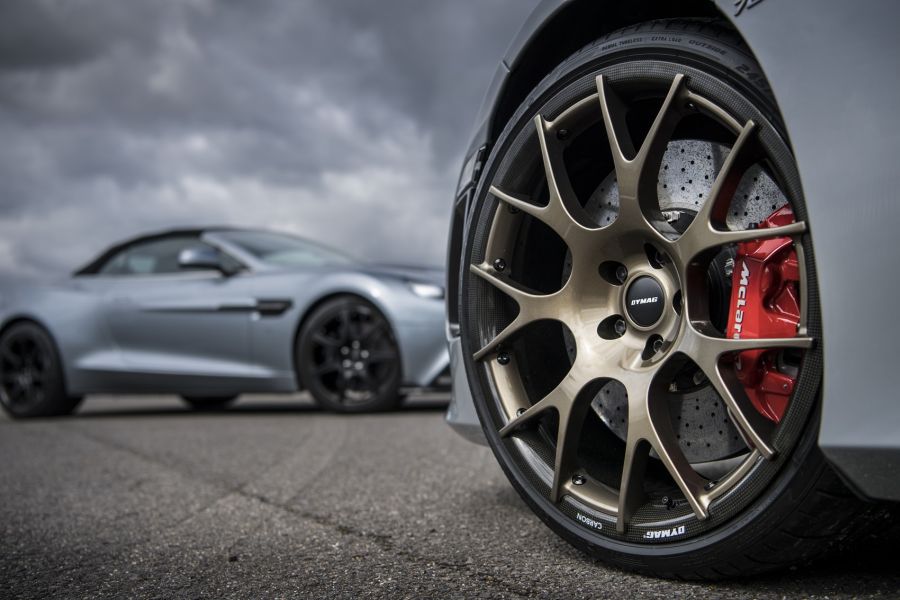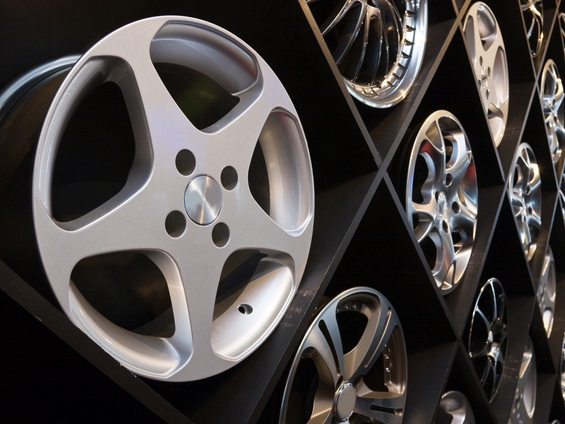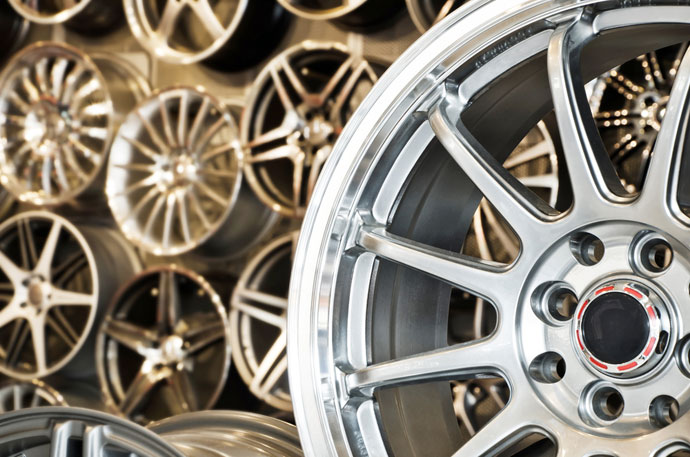All About Car Rims

1- What is a rim?
2- What are the types of rims?
3- What are the rim types according to the material it is produced?
4- What are the rim dimensions?
5- What are the points to consider while choosing rims?
The rim is an indispensable part of a car, which is both pleasing to the eye and technically having various functions. In a car, the rim is located on the inside of the tire in the form of a circle. It is an assembly made of metal. By mounting a tire around the rim, the vehicle is enabled to move. Rims, which are an important element in the exterior of the vehicle, are directly connected to the axle system. All about car rims will be explained below.
 Rims that can be produced from a wide variety of materials have different effects on vehicle performance. Problems may arise due to the rim chosen against the vehicle’s weight, traction and basic characteristics. The fuel consumption of the car may increase and the traction power may weaken due to the rim chosen differently from the original. For this reason, the selection of rims should be done meticulously without being taken lightly.
Rims that can be produced from a wide variety of materials have different effects on vehicle performance. Problems may arise due to the rim chosen against the vehicle’s weight, traction and basic characteristics. The fuel consumption of the car may increase and the traction power may weaken due to the rim chosen differently from the original. For this reason, the selection of rims should be done meticulously without being taken lightly.
What is a rim?
The part placed inside the tire and directly related to the movement of the car is called the rim. The main task of the rims, which function in connection with the axle system, is to ensure the movement of the car. It is also seen as a design element because it can be produced from different materials. Rims are given importance by people who want to give their vehicle a different look.
What are the types of rims?
Tubeless Rim
This type of rim, which is tubeless rim in English, is produced without a tube. In the tubeless rim with only the outer tire, the tire and rim are designed to be stuck together. Thanks to this state of adhesion, air leakage is prevented and there is no need for the existence of the inner tube. There are also different types of tubeless rims, which started to be produced for the first time in our country in the 1980s.
50 Tire Seat Angle Rim: It is a type of rim mostly used in pickup trucks. Its dimensions are determined as 13”, 14” and 17”.
Rim with 150 Tire Seat Angle: Wide tires should be used with this rim type. The size of the rim is produced as 17.5”, 19.5” and 22.5”.
4-Piece Rim with 50 Tire Seat Angle: This rim type can be used with tires included in the 80 series. Its size is determined as 20”.
Inner Tube Rim
This rim, which is tube tire rim in English, is produced in a way that consists of 3 different parts. Parts called circlip, rim and hub are located on the inner tube rim. Compared to other rims, it is seen that it is used a lot.
Hubless Rim
This type, also known as spoke rim, combines the features of tubeless and tubeless rims. It is produced with rubber and tubeless.
What are the rim types according to the material it is produced?
Rims, which are also used as a design element of the vehicle, can be produced from different materials to have a different appearance. These materials are:
Aluminum Alloy Rims: This type of rim puts less load on the vehicle due to its lighter structure. In this way, acceleration of the vehicle becomes easier and fuel can be saved. Due to this aspect, it is seen that aluminum alloy rims are used intensively. While producing this type of rim, 90% aluminum and 10% silicon are used. It is preferred by many people because it has a wide range of visual design.
Sheet Rims: When a 0 km vehicle is purchased, it is often seen that the sheet metal rim is mounted on it. It is often preferred by businesses that have budgetary problems due to its less cost. Compared to the aluminum alloy rim, it is of lower quality.
Magnesium Alloy Rims: They are not used much in Turkey as they are more costly than other types of rims.
What are the rim dimensions?

The rim size of each vehicle is determined by the manufacturer at the initial design stage. Rims that are larger than the factory rim sizes sometimes cause various problems. The factors that are taken as a basis in determining the rim size are as follows:
Rim Width: The unit of measurement used to measure width is inches. The width of the rim varies from 5 inches to 15 inches. In order to determine the width, it is necessary to measure from the inside of the flanges.
Flange: The sidewall of the tire in contact with the rim is called the flange. Without the flange, the rim cannot be expected to fit the tire completely. Different types of flanges are available.
Rim Diameter: The unit of measure for diameter is inches. The diameter of the rim is determined by measuring from the inside of the flange. Available in rim diameters ranging from 13 inches to 30 inches.
Rim Offset: It is the length of the distance from the inner hub of the offset rim, the size of which varies between -50 mm and 70 mm, to the middle of the rim. Indicated as IS or ET. The offset range of most rims varies between 20 and 60.
What are the points to consider while choosing rims?
Rims, as well as tires, play an important role in ensuring that a vehicle travels safely in traffic. The handling, fuel consumption, exterior appearance and traction power of the car vary according to the type and size of the rim.
-No rim should be fitted to the vehicle just because it looks good. Choosing rims that are of poor quality, not suitable for the weight of the vehicle, and large or smaller than they should be, adversely affect vehicle safety.
-The best quality of the steel rim, which is the commonly used rim type, should be selected. Otherwise, the rim may be bent or broken on uneven roads.
-The larger the mounted rim, the less the ride comfort in the vehicle.
-Thanks to the rims, the brake system is cooled. Therefore, care should be taken that the selected rim is made of durable material.
-Large rims are heavier than other size rims. This weight gain leads to higher fuel consumption. The larger the rim, the lower the driving performance of the car. The reason for this is that the motor consumes more energy to rotate the larger rims. The important point here is that the engine capacity of the vehicle is capable of producing the power needed by large wrims.
-Rims fitted to the vehicle must be compatible with the vehicle’s engine power.


